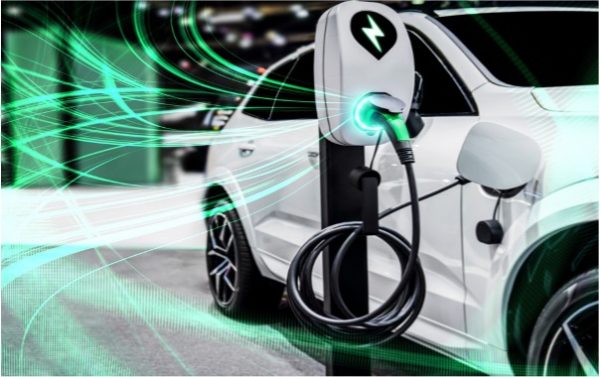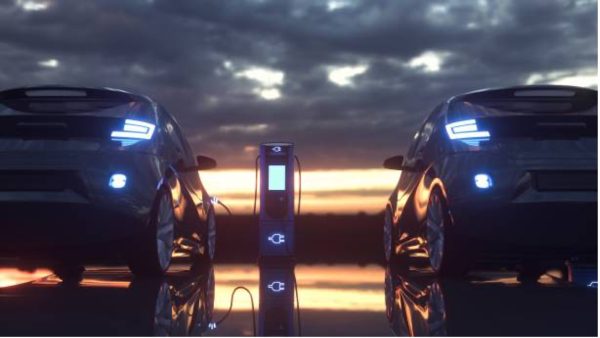Our PR Director, Michelle Smytheman, is passionate about helping emerging professionals in the communications industry and teaches at the University of the Sunshine Coast. As part of an assessment task this year, there have been some excellent blogs written by first-year students about emerging business trends. We are proud to share their work.
By Muskaan Singh
 Electric vehicles are transforming the global automotive market. With new car-tech innovations allowing reduced energy costs, lower emissions and convenient home charging, it is no surprise major automakers are racing to bring electric cars to the market. However, what does this mean for the future of internal combustion engine (ICE) vehicles? Currently at 51.5% market share, ICE vehicles that rely on petrol or diesel fuels are in sharp decline. As a result of the pressures from government incentives, consumer buyer behaviour and technological advancements, ICE vehicles will be rendered obsolete by more sustainable alternatives.
Electric vehicles are transforming the global automotive market. With new car-tech innovations allowing reduced energy costs, lower emissions and convenient home charging, it is no surprise major automakers are racing to bring electric cars to the market. However, what does this mean for the future of internal combustion engine (ICE) vehicles? Currently at 51.5% market share, ICE vehicles that rely on petrol or diesel fuels are in sharp decline. As a result of the pressures from government incentives, consumer buyer behaviour and technological advancements, ICE vehicles will be rendered obsolete by more sustainable alternatives.
Having no combustion engine, electric vehicles produce significantly fewer emissions. With the relationship of advancing technology and environmental awareness significantly driving current consumer values, the sustainable opportunities in electric vehicles differentiate it from previous products on the market. Evidence from Deloitte analysis shows rapid growth in electric vehicle sales. By 2030, total sales are expected to reach 31.1 million with a total market share of 32% for new car sales. Such rapid growth in the future of electric vehicles demonstrates a long-term market trend. It is imperative for current businesses to consider these trends in order to stay competitive.
 The pressures of climate change, a significant consumer pain point, have caused the demand for more sustainable and eco-friendly vehicles to grow. According to the International Energy Agency (IEA), reaching net-zero emissions globally by 2050 is a critical and formidable goal. However, recent studies in the global transportation sector found that in 2021, petrol and diesel engines produced more than seven billion metric tons of carbon dioxide. Furthermore, passenger cars accounted for 39% of global transportation emissions. These statistics show that transportation is the primary cause of unsustainable energy usage. However to be able to mitigate climate change, decarbonisation of transport is crucial. Sustainable alternatives are major driving forces for market growth in the electric vehicle sector.
The pressures of climate change, a significant consumer pain point, have caused the demand for more sustainable and eco-friendly vehicles to grow. According to the International Energy Agency (IEA), reaching net-zero emissions globally by 2050 is a critical and formidable goal. However, recent studies in the global transportation sector found that in 2021, petrol and diesel engines produced more than seven billion metric tons of carbon dioxide. Furthermore, passenger cars accounted for 39% of global transportation emissions. These statistics show that transportation is the primary cause of unsustainable energy usage. However to be able to mitigate climate change, decarbonisation of transport is crucial. Sustainable alternatives are major driving forces for market growth in the electric vehicle sector.
In order to collectively reach the IEA’s 2050 emission goals, government incentives are driving automakers to electrify their vehicle portfolio. For example, many governments offer financial incentives such as providing cash subsidies to consumers buying low-emission vehicles, reducing taxes on electric vehicles and increasing taxes on ICE vehicles. Similarly, several countries have announced accelerated timelines for ICE sale bans in 2030 or 2035. This means that the relationship between government intervention and evolving customer attitudes fosters major opportunities for the electric vehicle market whilst simultaneously eradicating ICE vehicles on the market.
Evident in an examination by the University of Turin in 2022, consumer behaviour in the electric car market was found to be driven by the critical demand to advance future mobility owing to climate change. Similarly, it was concluded in an investigation by Career Point University that the intention toward electric vehicle adoption has an indirect correlation with environmental factors, personal moral norms and attitudes and the post-purchase satisfaction of buyers. This means that consumer buyer behaviour is evolving as the demand for sustainable mobility modes continues to grow. From these investigations, it is important for current businesses to consider customer value for sustainable technology, social attitudes surrounding environmental friendliness and trends in technological advancements. However, although electric vehicles are considered energy efficient, the battery can still produce greenhouse gases and other forms of pollution.
When consumers are increasingly seeking out the most innovative and sustainable products, the carbon footprint of electric vehicle batteries may become a major limitation. Before electric vehicles became more widespread, the biggest concerns for consumers involved costs, battery range and charging facilities. Thus solving these challenges were the focus of the auto industry – until now. Currently with demand for electric vehicles rapidly increasing, the new issue of the industry focuses on the recyclability of electric vehicle batteries.
In a 2021 investigation by Cornell University, solutions to reducing the carbon footprint of batteries were discovered by converting old electric vehicle batteries into storage units for renewable energy. This proposes a potential unique selling proposition for future electric vehicle batteries by offering an environmentally friendly and inexpensive low-carbon energy storage facility. However, the technology of electric vehicles currently offered on the market does not provide a fully sustainable scenario. Therefore, it is important for further research to be conducted on charging technology and how this evolution affects electric vehicle sales.
There is no doubt that electric vehicles are transforming the global automotive market. Evidence from recent investigations shows long-term trends in environmental sustainability. As electric vehicles offer sustainable transport alternatives through reduced energy costs, lower emissions and innovative advancements, there is great potential for future market growth. The future of cars is electric.




